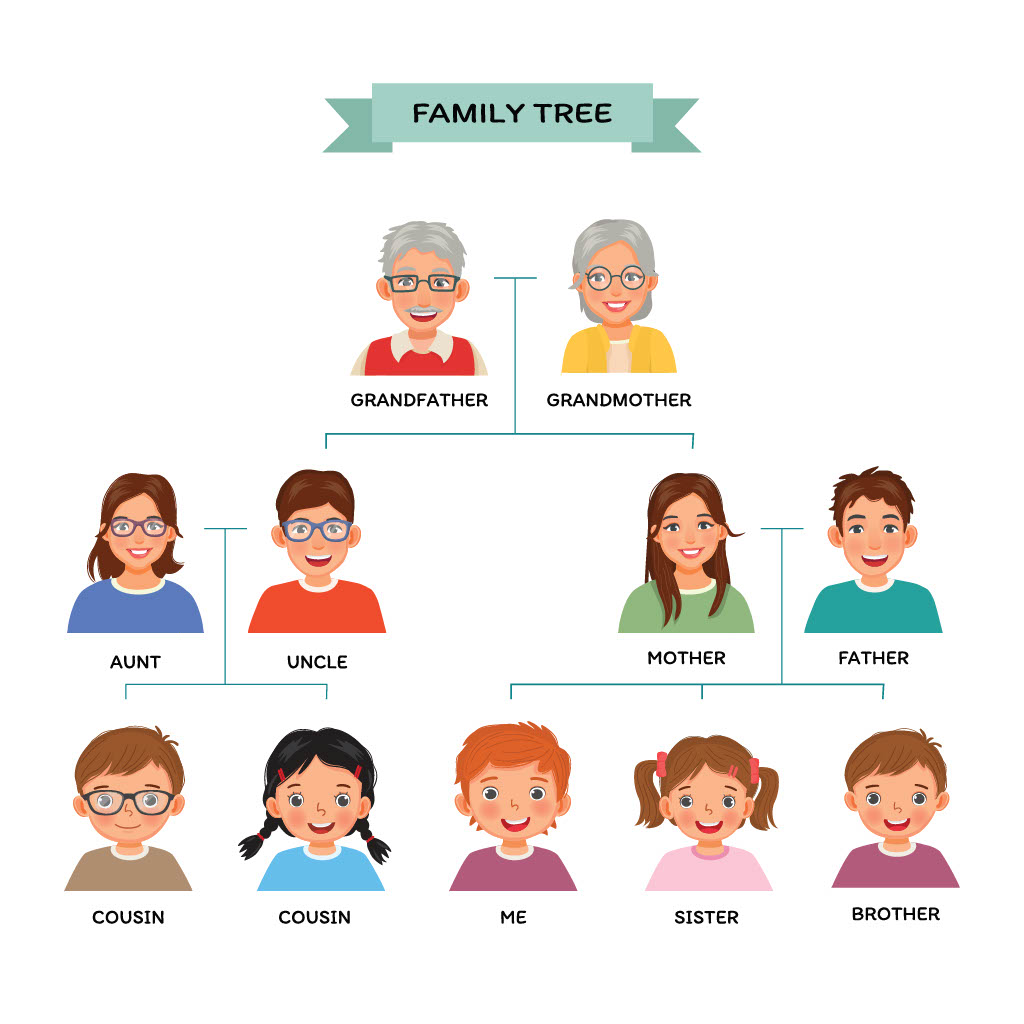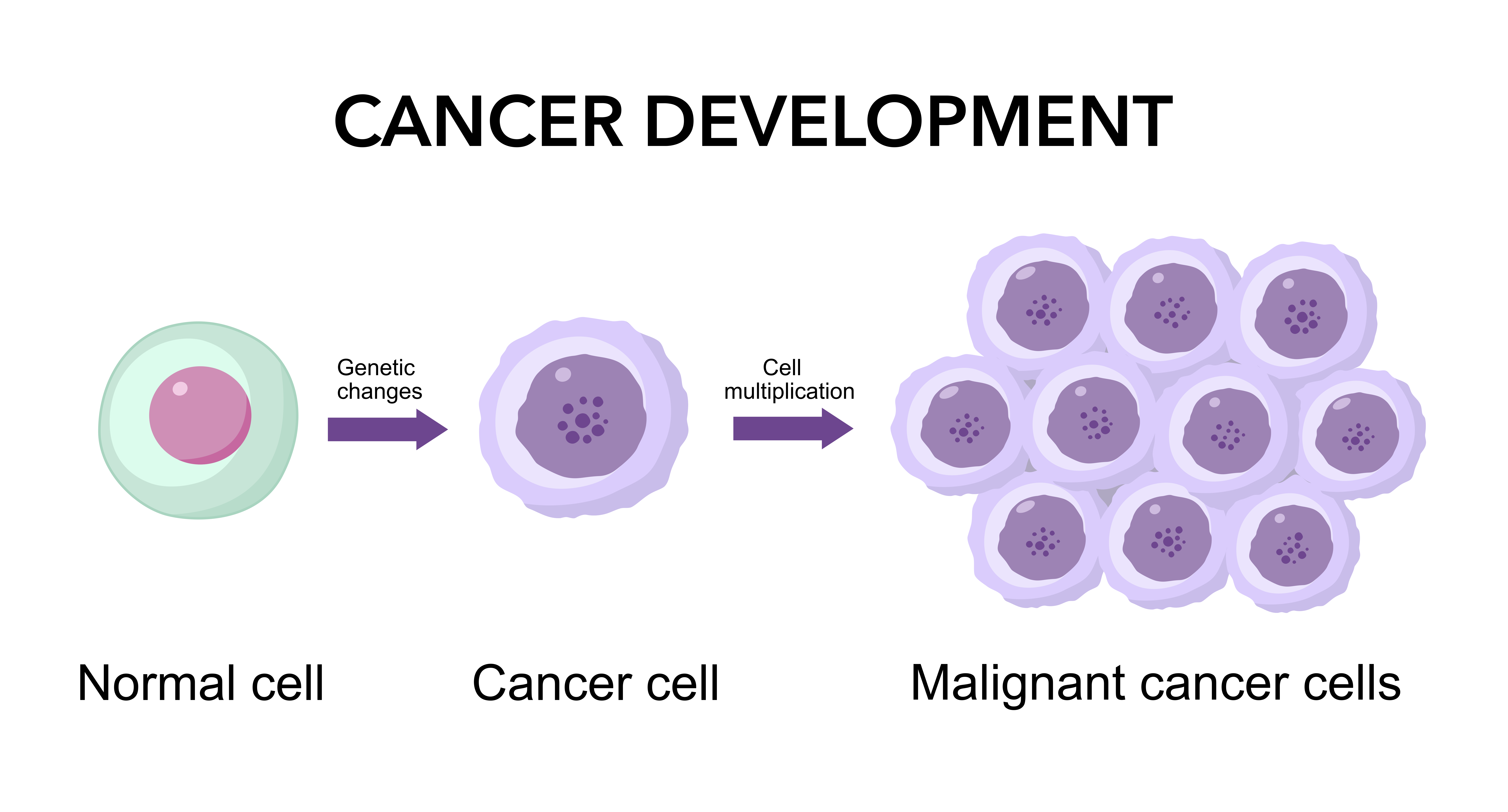Bowel Cancer: A Doctor's Guide
Inherited Risk, Prevention, Genetic Testing, Early Detection & Screening Explained
What Everyone Needs To Know About Bowel Cancer
Bowel cancer is the 3rd most common cancer in both males and females in the UK. Like most cancer it becomes more common with age, especially after 45. But sadly we are now seeing an increase in ‘early onset’ colorectal cancer, under 50 years of age. Cases under 50 are predicted to double in the next 10 years.
Using genetic testing to find people at increased inherited risk can help us diagnose more cancers early, when they are easier to treat. We can also prevent many cancers altogether.
❓ What Causes Bowel Cancer?
No single thing causes bowel cancer. Even people with a strong inherited chance of cancer can reduce their risk by knowing about other risk factors. Knowing about things in your lifestyle, family history and hormones which can increase your risk will help you stay healthy. Some of the key risk factors include:
🧬 Genetic & Health Factors:
- Family history of bowel cancer – Having a first-degree relative (for example a mother or sister) with bowel cancer more than doubles your risk of developing bowel cancer.
- Family history of polyps – Many people have small growths on the inner lining of the bowel or rectum, these are called polyps or adenomas. If your parent or sibling has had polyps removed this may increase your risk of cancer by as much as 35%.
- High-Risk Inherited Colorectal Cancer Syndromes – Some of those people have inherited a specific genetic change that causes a high risk of colorectal cancer. Genes affected include APC, MUTYH and Lynch syndrome. This may explain 35% of cases of early-onset colorectal cancer.
- Diabetes and Insulin Resistance: People with diabetes have a 22 to 33% higher chance of rectal and bowel cancer than non-diabetes.
- Inflammatory Bowel Disease – Patients affected by Ulcerative Colitis have an increased chance of bowel cancer.
- Radiation – Radiation for other cancers as a child or young adult can lead to bowel cancers later in life.
- Cystic Fibrosis – This condition primarily affects the lungs but it is also linked to an increased colon cancer risk.
- Hormone treatments: The oral contraceptive pill has been linked to lower bowel cancer risk. Postmenopausal hormone therapy may also reduce risk. It’s not clear how they are linked, it is not currently recommended to use hormone therapy specifically to prevent bowel cancer.
- Medicines: Other medications have been linked to cancer prevention including statin, aspirin, bisphosphonates and angiotension II inhibition, we need more data to understand if and how these may help.

🍏 Lifestyle Factors:
- Alcohol – Just two units of alcohol per day, such as a single glass of wine, increases risk by about 4%.
- Obesity – Being overweight increases the risk of polyps and bowel cancer.
- Weight carried around the tummy is especially important. Check this by measuring your waist or more accurately measure visceral fat by MRI scan.
- Physical inactivity – Regular exercise, like brisk walking 30 min/day for 5 days a week can lower bowel cancer risk by up to 50%.
- Smoking – Current smokers have about up to 21% extra risk compared to people who have never smoked.
- Red and Processed Meat – There have been lots of studies on this, many of which have found conflicting answers. It is likely the main culprits are processed meats such as sausages and ham. It’s likely eating high-quality organic red meat once to twice per week has very little risk, as part of a balanced diet.
- Fibre: The World Cancer Research Fund recommend a healthy amount of fibre in the diet to reduce bowel cancer risk. Some of the benefits of fibre might be related to how it helps keep your gut microbiome healthy. Check your Fibre Score online here.
- Calcium and dairy intake: There have been some promising studies showing having calcium-rich foods in the diet may help prevent bowel cancers. Some evidence suggests the benefit is more specific to milk, rather than other dairy such as cheese. Other foods under review include garlic, fish, coffee and magnesium.

👀 Watch For Bowel Cancer Symptoms:
Having these symptoms doesn’t always mean you have bowel cancer, but it’s still important to find out what’s causing them.
Don’t delay in making an appointment with a GP to talk about your symptoms.
- Bleeding from your bottom
- Blood in your poo (stool)
- A change in how often you poo (open your bowels), or regularly having diarrhoea or constipation
- Losing weight but you’re not sure why
- Feeling very tired all the time but you’re not sure why
- A pain or lump in your tummy
✅ Bowel Cancer Screening For Everyone
Planning your bowel cancer screening is important. Early onset colorectal cancer is rising and we would recommend everyone consider bowel cancer screening from 45 years of age.
People who have an inherited risk for bowel cancer may be eligible for extra screening from 25 years of age. This is why it is so important we find more of these patients so they don’t miss out on these life-saving cancer checks. Read more about testing for inherited risk ⬇️ here.

At-Home Stool Testing
It is quick and easy to screen for bowel cancer at home using a home test kit. The kit contains full instructions, use a small plastic stick, to collect a small sample of stool, place it in the tube and send it back in the post. The laboratory looks for tiny amounts of haemoglobin (red blood cells), which are invisible to the naked eye. A positive test result means you may be bleeding from the bowel. Further checks, usually a colonoscopy are recommended.
NHS Screening
The NHS in England currently offers a home test kit to those
- aged 54 to 74 years of age, every 2 years.
- If you are registered with an NHS GP it will automatically be sent to your home address.
- People aged 75 and over can call up to request a test kit.
Special risk groups
- Extra screening may be offered if you have a known inherited risk of bowel cancer such as those with Lynch Syndrome, or have previously had a bowel cancer.

Private At-Home Stool Testing With Coyne Medical
We recommend everyone from 45 years of age upwards consider bowel cancer screening.
- Early onset bowel cancer is increasing and testing can help us diagnose people earlier.
Quick and Easy At-Home Screening For Bowel Cancer
- Get a kit delivery to your home, do your sample and get a result within 1 week.
- Free follow-up consultation with one of our experienced GPs for any abnormal results to make sure you are looked after every step.
- Fee £91 including test kit, results and free follow-up GP consultation for any abnormal results.
Questions or Want To Check Symptoms?
- We would recommend consulting with a GP so you can make sure you get the right test and care.
- Book a GP consultation in-person with us in London or online anywhere in the UK.

NHS versus Coyne Medical Home Testing - Important Differences
Detect more cases
- The NHS test reports any reading above 120 micrograms/g.
- This is a high level.
- At Coyne Medical we report any level above 4 micrograms/g.
- This much lower level means we will find more cancers.
Find Cancer In Younger Patients
- We can offer screening from 45 years of age for people without any symptoms without a GP consultation.
- This means we can find cancer earlier in people not yet eligible for NHS testing.
- If you have symptoms then we can offer testing for adults of all ages with a GP consultation.
Testing More Often
- We offer testing every year for people without symptoms.
- This proven approach gives the maximum benefit for detecting colon cancer earlier. In studies of tens of thousands of patients this reduced the risk of dying from colorectal cancer by 33% over a 30 year period.
Downsides of Testing
- Not everyone with a raised result will have bowel cancer. This is common to all ‘screening’ tests, we know many people having extra checks won’t be found to have cancer. This is the price of detecting cancer early.
🔬 Inherited Risk Factors for Bowel Cancer
About 5 to 10% of cancers are caused by an inherited ‘faulty’ gene or mutation. This includes mutations in genes such as APC, MUTYH and Lynch syndrome. Gene mutations cause about 35% of early-onset colorectal cancer, when people get cancer under 50 years of age.
- Lynch Syndrome: The most common inherited cause. 5 different genes which can be mutated in Lynch syndrome; MLH1, MSH2, MSH6, PMS2 and EPCAM. The exact cancer risk depends on which gene is affected.
- Bowel cancer risk in Lynch Syndrome ranges from 12% to 75% before 75 years of age.
- Familial adenomatous polyposis (FAP): This is caused by a mutation in an APC gene. Polyps start in childhood, up to 90% of people will develop cancer by 45 years of age without treatment. Some types of APC gene mutation cause a milder form of FAP, these people have fewer polyps and develop cancer at older ages, on average 54 years.
- MUTYH-associated polyposis (MAP): Caused by mutations in the MUTYH gene. Usually, people are only affected if they inherit TWO faulty copies of the MUTYH gene. Occasionally some people have a combination of mutations in MUTYH and APC genes. The risk of bowel cancer in patients with two MUTYH gene mutations has been estimated at between 43% to 100%. People with only one faulty copy may also be at slightly increased risk.
- Other less common gene mutations include POLE and POLD1, MSH3, and NTHL.
🌱 How Do Bowel Cancers Develop
Cancers develop when individual cells become faulty. Errors in their DNA code allow them to grow uncontrollably to become a cancer or ‘tumour’. The cancer may eventually spread to other parts of the body.
DNA errors and damage are common, especially as we get older, and can be caused by our environment such as UV radiation and tobacco smoke. The body has lots of in-built mechanisms to repair DNA damage.
The lining of the bowel is constantly being replaced, as new cells develop DNA faults may occur. When faults allow a cell to grow more quickly it can become a clump of cells called an adenoma or polyp. As it gets bigger the cells of the adenoma can become ‘dysplastic’, this means the cells are unhealthy but not yet a cancer. Eventually, the cells continue to develop DNA faults allowing them to invade healthy tissue and spread, which makes them a cancer.
The process of change from normal bowel cell ➡️ adenoma ➡️ cancer usually takes over 10 years.

🧬 How Do Inherited Gene Mutations Cause Bowel Cancer
Lynch syndrome is the most common inherited cause of bowel cancer, it is caused by mutations in one of several genes. One of these is MLH1, it is a type of gene called a ‘tumour suppressor gene’. It’s also called a ‘mismatch repair gene’ or ‘MMR gene’. These names come from the function of MLH1, it makes proteins to repair errors in DNA.
Everyone is born with two copies of the MLH1 gene, one from each biological parent. If you inherit a version of the MLH1 gene which does not work as well a usual, it’s called a ‘germline mutation’. Because the MLH1 protein is faulty over time your cell’s DNA is more likely to become damaged, and if the damage reaches a certain level the cells become cancerous.
Inherited germline mutations can also be passed on to the next generation, i.e. to your children. Cancers are more likely and at younger ages if you’ve inherited a mutation like this because you can’t repair DNA errors.

🧐 Who Should Get Genetic Testing for Inherited Bowel Cancer?
At Coyne Medical we offer testing for everyone. We use genetic screening to find inherited cancer risks so that every patient can have the most accurate personalised cancer prevention and early detection.
If you have any of the risk factors below then genetic screening is strongly recommended.
- A personal or family history of bowel cancer, especially before age 50.
- Multiple cases of bowel cancer in close relatives.
- Family history of Lynch syndrome-related cancers. Lynch syndrome can be linked to other cancers beyond the bowel, so if multiple relatives have experienced these cancers it may be a warning of a Lynch syndrome mutation.
- endometrial (womb), ovarian, upper gastro-intestinal including pancreatic, gastric (stomach), small bowel and bile duct, urinary tract including renal (kidney) or brain.
- A known mutation in the family (e.g. Lynch syndrome, APC).
- Multiple polyps of the colon, especially people with 10 or more.
The NHS only offers genetic testing for high-risk individuals. If you would like to check if you are eligible then speak to your NHS GP, you can read more about the NHS criteria here.
🛠️ Why More People Should Have Genetic Testing
If only people in the high-risk group get tested we will continue to miss people with mutations. Only about 50% of people with an inherited gene mutation will tick one of the high-risk factors.
We know that less than 5% of people in the UK with Lynch Syndrome have been diagnosed. This is a terrible shame that many of those will miss out on prevention and early detection of cancer.
✅ Inherited Cancer Risks: Knowledge Is Power
Finding out that you have an inherited cancer risk is a great opportunity to make sure you optimise your cancer prevention strategy and detect cancer earlier.
- At Coyne Medical your doctor will explain the meaning of your test result. For instance, if you are found to have a pathogenic (harmful) mutation in MLH1 your risk of bowel cancer is between 48 to 75% before 75 years of age. Then you can start making your personalised plan.
- Prevention
- Aspirin: Taking a simple aspirin tablet daily for 2 years reduced the risk of bowel cancer by 60%. That’s an enormous benefit for a simple medicine and a great example of why it is so important we find more people with these mutations so they get to actually prevent their cancers.
- Fibre: a high-fibre diet can also reduce the risk of other cancers associated with Lynch Syndrome such as stomach and endometrium (womb).
- Other Cancers: you can discuss options for reducing risk of other cancers. For instance many women with Lynch Syndrome choose to have a hysterectomy (removal of the womb) to reduce the risk of endometrial (womb) cancer, after completing their family in their mid to late 40’s.
- Early Detection
- Colonoscopy: For example for MLH1 mutation carriers bowel cancer screening by a colonoscopy is recommended every 2 years from 25 years of age. This will help to detect cancers earlier, when treatment is easier and more successful.
At Coyne Medical we will support you every step of the way in getting the best care.
Protecting The Next Generation
When one person finds out they have a gene mutation they can share this information with family members. This means that their relatives such as children and grandchildren can benefit from the power of prevention and early detection.
Many people take great comfort from knowing they have helped to safeguard the health of their family.
Vaccinations To Prevent Cancer
The University of Oxford is currently working on a vaccine that would prevent cancers in those with Lynch Syndrome. Read more about their amazing work here.
This is just one example of how science is advancing very fast in the world of cancer, in the coming years knowing your genetic risks could lead to truly ground-breaking opportunities to prevent and treat cancers.
Colonoscopy Screening
The ‘gold’ standard in bowel cancer screening.
- Detects more bowel cancers than stool testing.
- Removes polyps, benign (non-cancerous) lesions, but they can transform into cancer over many years.
- This reduces the chance of cancer in the future.
- Bigger reduction in the chance of dying of bowel cancer than stool testing.
Negatives to Colonscopy Screening.
- Requires bowel “preparation”
- Following a special diet and taking bowel-clearing medicines before the test.
- Very small risk of damage to the bowel during the procedure.
- Financial cost, if not eligible for NHS testing, a self-funded colonoscopy usually costs around £2,200.
- If you have symptoms that could indicate bowel cancer and private medical insurance we may be able to refer you for private testing using your policy benefits.
- Many international insurers may cover colonoscopy screening as it is recommended in other countries such as the USA.
- Book a GP consultation virtual or in-person if you would like to discuss more.

Dr Lucy discovered her own inherited breast cancer risk through genetic screening.She's passionate about giving more people the power of prevention.
🤝 Support & Resources
If you have concerns about bowel cancer, these support groups and resources can provide guidance and community:
- Lynch Syndrome UK: A brilliant group started by patients in 2014, provide information, support and advocate for improvements in care.
- Lynch Choices: Support for patients from testing to diagnosis, information on screening and preventative therapies.
- A beginner’s guide to Lynch Syndrome: Excellent detailed information from Royal Marsden Hospital.
- PolyposisPatient: Patient support group for all those with polyposis syndromes.
- Bowel Cancer UK: Support and information online and by phone.
If you have a resource that you think would be helpful to share here please email drlucy@coynemedical.com